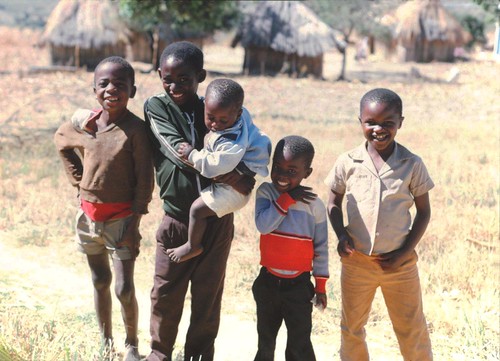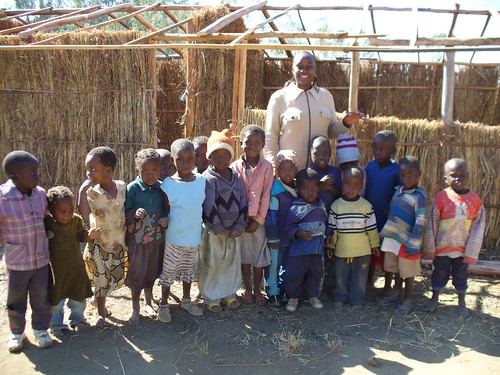Difference between revisions of "Adopting from Zimbabwe"
(→Hague Convention Information) |
|||
| Line 22: | Line 22: | ||
=Hague Convention Information= | =Hague Convention Information= | ||
| + | Zimbabwe is not party to the Hague Convention on Protection of Children and Co-operation in Respect of Intercountry Adoption (the Hague Adoption Convention). Intercountry adoptions of children from non-Hague countries are processed in accordance with 8 Code of Federal Regulations, Section 204.3 as it relates to orphans as defined under the Immigration and Nationality Act, Section 101(b)(1)(F). | ||
| + | |||
| + | |||
| + | '''Intercountry adoption in Zimbabwe is rare. Prospective [[Adoptive Parents|adoptive parents]] should be prepared to face significant bureaucratic hurdles and delays when attempting to [[adopt]] in Zimbabwe.''' | ||
| + | |||
| + | |||
| + | Zimbabwe’s adoption authority, the Ministry of Public Service, Labour and Social Welfare, prefers to place Zimbabwean children with parents of the same race. The Minister of Labour and Social Services must approve all interracial adoptions. In addition, the Zimbabwean government discourages intercountry adoptions and may make additional demands before finalizing an adoption for parents who are not citizens of Zimbabwe. Some of these additional demands include counseling for the prospective adoptive child and prospective [[Adoptive Parents|adoptive parents]], and requiring prospective [[Adoptive Parents|adoptive parents]] to submit a completed home study report which includes visits by a Zimbabwean [[Social Worker|social worker]] to their place of residence. The home study that prospective [[Adoptive Parents|adoptive parents]] submit to USCIS with their Form [[I-600A]] or [[I-600]] normally suffices. | ||
| + | |||
| + | |||
| + | '''NOTE:''' Prospective [[Adoptive Parents|adoptive parents]] not living in Zimbabwe must obtain a residency waiver from the Ministry of Public Service, Labour and Social Welfare before their adoption application is approved. | ||
| + | |||
| + | |||
| + | Adoptions where the birth parent(s) relinquish a child directly to the prospective [[Adoptive Parents|adoptive parents]] are referred to as “nominated” or “directed” adoptions. Nominated or directed adoption is legal in Zimbabwe. However, this type of adoption may not meet the guidelines for immigration to the United States. Prospective [[Adoptive Parents|adoptive parents]] involved in nominated or directed adoption should contact the U.S. Embassy in Harare before formalizing an adoption agreement to ensure that appropriate procedures have been followed that will make it possible for the Embassy to issue a U.S. immigrant visa to the [[adopted]] child. | ||
| + | |||
| + | |||
| + | '''U.S. IMMIGRATION REQUIREMENTS FOR INTERCOUNTRY ADOPTIONS''' | ||
| + | |||
| + | |||
| + | To bring an [[adopted]] child to the United States from Zimbabwe, you must meet eligibility and suitability requirements. The U.S. Department of Homeland Security, U.S. Citizenship and Immigration Services (USCIS) determines Who Can [[Adopt]] under U.S. immigration law. | ||
| + | |||
| + | |||
| + | Additionally, a child must meet the definition of orphan under U.S. law in order to be eligible to immigrate to the United States on an IR-3 or IR-4 immigrant visa. | ||
=Who Can Adopt= | =Who Can Adopt= | ||
Revision as of 02:44, 12 April 2014
Contents
Hague Convention Information
Zimbabwe is not party to the Hague Convention on Protection of Children and Co-operation in Respect of Intercountry Adoption (the Hague Adoption Convention). Intercountry adoptions of children from non-Hague countries are processed in accordance with 8 Code of Federal Regulations, Section 204.3 as it relates to orphans as defined under the Immigration and Nationality Act, Section 101(b)(1)(F).
Intercountry adoption in Zimbabwe is rare. Prospective adoptive parents should be prepared to face significant bureaucratic hurdles and delays when attempting to adopt in Zimbabwe.
Zimbabwe’s adoption authority, the Ministry of Public Service, Labour and Social Welfare, prefers to place Zimbabwean children with parents of the same race. The Minister of Labour and Social Services must approve all interracial adoptions. In addition, the Zimbabwean government discourages intercountry adoptions and may make additional demands before finalizing an adoption for parents who are not citizens of Zimbabwe. Some of these additional demands include counseling for the prospective adoptive child and prospective adoptive parents, and requiring prospective adoptive parents to submit a completed home study report which includes visits by a Zimbabwean social worker to their place of residence. The home study that prospective adoptive parents submit to USCIS with their Form I-600A or I-600 normally suffices.
NOTE: Prospective adoptive parents not living in Zimbabwe must obtain a residency waiver from the Ministry of Public Service, Labour and Social Welfare before their adoption application is approved.
Adoptions where the birth parent(s) relinquish a child directly to the prospective adoptive parents are referred to as “nominated” or “directed” adoptions. Nominated or directed adoption is legal in Zimbabwe. However, this type of adoption may not meet the guidelines for immigration to the United States. Prospective adoptive parents involved in nominated or directed adoption should contact the U.S. Embassy in Harare before formalizing an adoption agreement to ensure that appropriate procedures have been followed that will make it possible for the Embassy to issue a U.S. immigrant visa to the adopted child.
U.S. IMMIGRATION REQUIREMENTS FOR INTERCOUNTRY ADOPTIONS
To bring an adopted child to the United States from Zimbabwe, you must meet eligibility and suitability requirements. The U.S. Department of Homeland Security, U.S. Citizenship and Immigration Services (USCIS) determines Who Can Adopt under U.S. immigration law.
Additionally, a child must meet the definition of orphan under U.S. law in order to be eligible to immigrate to the United States on an IR-3 or IR-4 immigrant visa.
Who Can Adopt
Residency
Age of Adopting Parents
Marriage
Income
Other
Who Can Be Adopted
How to Adopt
Adoption Authority
The Process
Traveling Abroad
Applying for Your U.S. Passport
A valid U.S. passport is required to enter and leave Zimbabwe. Only the U.S. Department of State has the authority to grant, issue, or verify U.S. passports. Getting or renewing a passport is easy. The Passport Application Wizard will help you determine which passport form you need, help you to complete the form online, estimate your payment, and generate the form for you to print-all in one place.
Obtaining Your Visa
In addition to a U.S. passport, you also need to obtain a visa. A visa is an official document issued by a foreign country that formally allows you to visit. Where required, visas are attached to your passport and allow you to enter a foreign nation. To find information about obtaining a visa for Zimbabwe, see the Department of State's Country Specific Information.
Staying Safe on Your Trip
Before you travel, it's always a good practice to investigate the local conditions, laws, political landscape, and culture of the country. The State Department is a good place to start. The Department of State provides Country Specific Information for every country of the world about various issues, including the health conditions, crime, unusual currency or entry requirements, and any areas of instability.
Staying in Touch on Your Trip
When traveling during the adoption process, we encourage you to register your trip with the Department of State. Travel registration makes it possible to contact you if necessary. Whether there's a family emergency in the United States, or a crisis in Zimbabwe, registration assists the U.S. Embassy or Consulate in reaching you. Registration is free and can be done online.
After Adoption
What resources are available to assist families after the adoption?
Many adoptive parents find it important to find support after the adoption. Take advantage of all the resources available to your family -- whether it's another adoptive family, a support group, an advocacy organization, or your religious or community services.
Here are some good places to start your support group search:
Child Welfare Information Gateway
North American Council on Adoptable Children
Adoption Services Support Group for Adopting Persons
SOURCE
Intercountry Adoption, Bureau of Consular Affairs. U.S. Department of State Country Information









